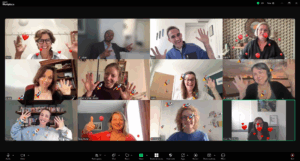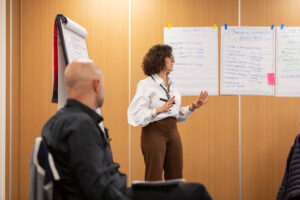How Great Leaders Handle Crisis: ORSC & The Cynefin Framework
In our fast-paced society, many of us are under more pressure than ever to show leadership, assertiveness and make decisions. CEOs, managers, politicians and other types of leaders are often faced with a variety of problems that require more than a “one-size-fits-all” approach.
Many progressive organisations are moving away from the old-fashioned “command and control” management style, and more towards “ORSC” methods of leadership. But are there times where a more “traditional” approach to leadership would still be the most effective?
Enter the Cynefin Framework, created by Dave Snowden in 1999.
This framework has been adopted by many successful leaders, such as. It is a sensemaking tool used to categorise critical situations before determining the best way to diffuse the situation.
These 5 categories (otherwise known as domains) are:
Obvious:
Identified by an “obvious” cause and effect pattern. There is one clear “best practice” pathway to solution. The suggested process to resolve such situations is:
- Sense the situation
- Categorise the situation
- Respond with established ‘best practice’ solution
Complicated
These situations are still relatively straightforward, however there may be more than one “good practice” solution due to a number of factors. These can be resolved by sourcing the help of an expert to determine the most appropriate response.
Suggested process:
- Sense the situation
- Analyse the problem
- Respond with a plan
Complex
These situations do not have an established or known pathway towards resolution. The suggestion is to act through experimentation before sensing the situation:
- Probe – experiment and evaluate (then repeat)
- Sense the situation after each experiment
- Respond – take action and move situation into complicated domain
Chaos
Chaotic situations are where – you guessed it – the system is in utter meltdown. It is suggested to act immediately to restore order as soon as possible before making steps to move the situation to complex.
- Act immediately– trust your instinct
- Sense – assess the situation and determine next steps
- Respond – take action to move problem to another domain
Disorder
In this domain, there is confusion as to which category the situation lies. The situation must be analysed and broken up into manageable, categorisable chunks.
ORSC & The Cynefin Framework: How Great Leaders Handle Crisis
Hindsight is the only way to fully understand how complex situations came to being, and the effect they will have on the rest of the system further down the line.
ORSC gives leaders an armoury of tools and skills to be able to understand a system and adapt their management accordingly and implement effective damage control. The reason ORSC is so adaptable is because it’s unbias towards the political, social or climate of a system and its culture. It simply works with the intelligence of each system. Working with feedback loops and understanding the unique intelligence of a system will avoid the classic challenge of prematurely responding to crisis.






